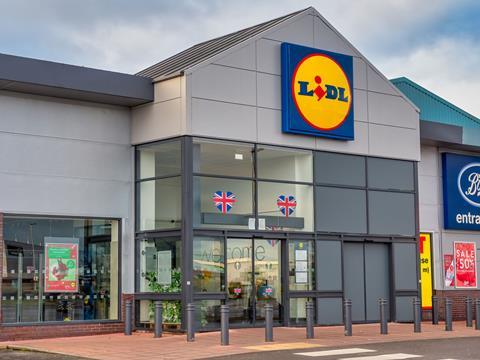
In a bid to reduce SUP, supermarket chain Lidl announces plans to replace fruit and vegetable bags with compostable alternatives, while select stores will trial a soft plastic collection initiative for packaging.
The company says that its new initiatives are part of its wider REset Plastic strategy, which it established to help eliminate plastic waste and support the reduction and recyclability of plastics in its stores.
Single use fruit and vegetable plastic bags will be replaced with compostable bags. Lidl adds that it will begin the roll-out of these new bags from January 22.
According to the company, this will result in the removal of 275 tonnes of conventional SUP. It says the new bags are designed to be re-used as caddy liners for domestic food waste collections, as well as apparently being suitable for home composting.
In addition, 12 stores in the West Midlands will take part in the trial plastic bag and wrapping recycling scheme, which Lidl adds will be expanded nationwide if it is successful.
Beginning in October, the trial will enable customers to return soft plastic packaging that is reportedly not collected by more than 80% of local authorities in the UK. The company says this will include items from any brand or retailer, including carrier bags, biscuit wrappers, crisp packets, bread bags and pet food pouches.
Customers will be asked to return plastic packaging to drop-off points at the front of Lidl stores. Lidl says that it will then ensure eligible soft plastics will be recycled into products, such as refuse sacks and rigid construction products.
Christian Härtnagel, CEO at Lidl GB, says: “At Lidl GB we are committed to tackling excessive plastic waste and our compostable fruit and vegetable bags are the latest innovation to help limit the amount of plastic in our environment.
“As a bricks and mortar retailer, how we operate in our stores, and the packaging we use, plays such a vital role in helping customers to tackle their plastic consumption.
By offering convenient solutions such as compostable bags and making it easier for customers to recycle more plastic through our in-store drop off points, we are hoping to give customers the opportunity to take small steps to reduce and recycling their plastic packaging.”
Lidl has committed to making 100% of its own brand packaging widely recyclable, reusable or refillable by 2025. Last year, it adds, it apparently ensured 50% of its packaging was made from recycled materials.
Lidl has made further commitments to sustainability by removing what it calls “problematic” packaging from its own brand ranges, including black plastic packaging, which cannot be recycled, across its fruit and vegetable range in Ireland and Northern Ireland.
Last month, Lidl also announced that it had allegedly removed a “milestone” one billion pieces of plastic from stores across Great Britain, including 24 million plastic trays and punnets.














